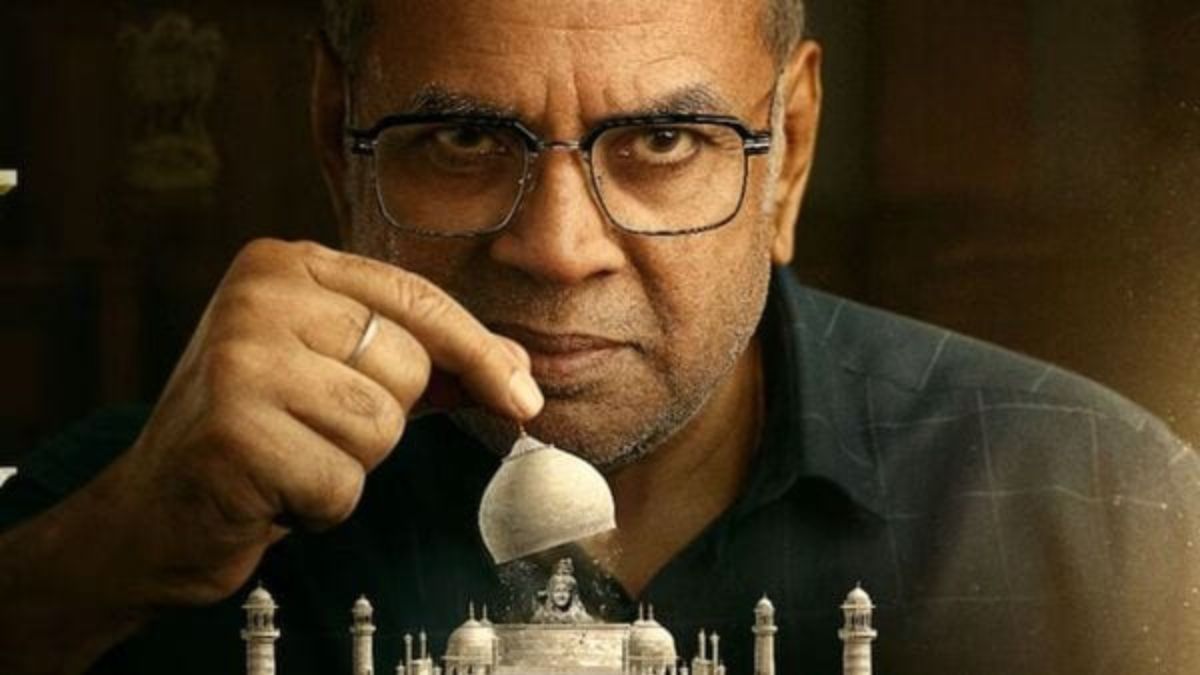
Declaring that it cannot function as a “super censor board,” the Delhi high court on Thursday declined to consider a petition contesting the Central Board of Film Certification’s (CBFC) certificate for the Paresh Rawal film Taj Story. Since the producers issued a movie poster featuring a statue of Lord Shiva coming from the Taj Mahal’s dome, the film—which is slated for release on Friday and is produced by CA Suresh Jha—has generated controversy.
A panel made up of Justice Tushar Rao Gedela and Chief Justice DK Upadhyay noted that the Cinematograph Act contains no statutory provisions that permit the CBFC to examine its own certification. “We are unable to give such a directive since the Cinematograph Act does not provide for review (a review of the certificate issued by the censor board). You haven’t conducted any investigation. Nothing, no case laws. Will you file it only because you believe something is wrong?”
The bench stated, “We’re not a super censor board. Try to understand our limitations.” “We cannot interfere like this,” it continued. Please be understanding. You need to have alerted us to the fact that the granted certification violates the guidelines established by the Cinematograph Act.
After their attorney Ashish Dixit brought the matter to the court’s attention, the petitioners Shakeel Abbas and Chetna Gautam were told that instead of submitting a plea, they need to have gone to the Central government to contest the certificate. On an application from the person who feels wronged, the Center may declare a picture uncertified and take certain temporary actions, like suspending the certificate, under Section 6 of the Cinematograph Act, 1952.
The petitioners were free to approach the Center once they decided to withdraw their petitions. It would be more suitable for the petitioners to approach the Central government by using the remedy under Section 6, which offers a revisional remedy to anyone who feels wronged by film certification. The petitioners’ attorney wants to withdraw the writ petitions while still being able to use Section 6 as a remedy.
As a result, the court dismissed the petitions since they were not filed with the requested liberty. In addition to asking the court to prevent the film’s release in its current form, Abbas asked the court to order the CBFC to either examine the certificate that was given to the film or make the required edits to protect communal peace.
Additionally, he wanted the film to include a disclaimer that said it depicted a contentious story. According to the petition, the film is based on false information and was produced specifically as propaganda to disseminate a distorted version of history by presenting false information about the seventh wonder of the world.
It continued by saying that the uncut distribution of the film has the potential to undermine trust in historical research, incite social strife, and harm the Taj Mahal’s standing as a UNESCO World Heritage Site globally. “There are some extremely polarizing situations in the film that could incite conflicts between communities and disrupt social harmony.”
“In light of growing concerns about the film’s potentially inflammatory and divisive content, which may raise concerns of inciting communal disharmony, the petition claimed that the movie has magnified controversial statements made occasionally by BJP leaders and other Hindutva organizations, which could lead to communal unrest across the country.”
